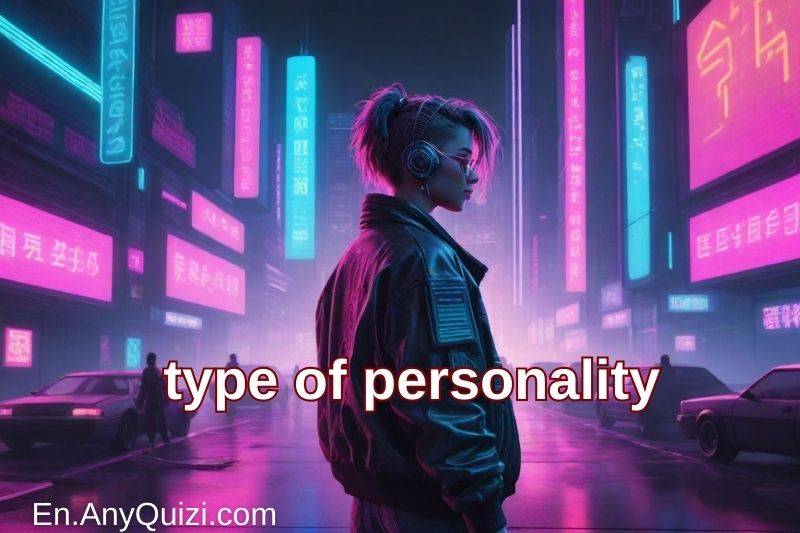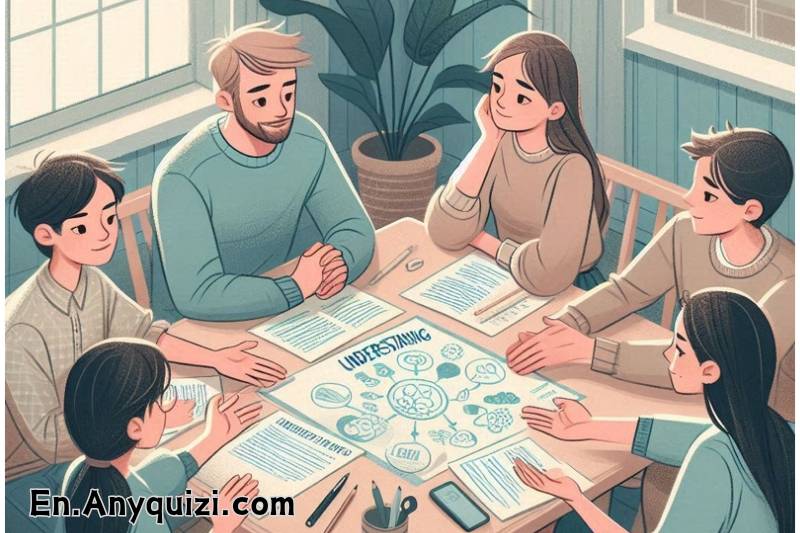Loving the Unlovable
It was a beautiful Saturday in September, and my wife and I were walking in the “Reynold” Gardens, enjoying the plants, some of which were brought from different parts of the world. It was RJ Reynolds, one of the tobacco magnates, who created Those gardens were part of his country estate, but now they were part of the Wake Forest University campus, and we had only passed the flower garden when I noticed that Ann, a woman who had started coming to me for consultations two weeks ago, was approaching us, looking down at the little stones in the path. She seemed to be immersed in deep thought, and when I greeted her, she was terrified at first, then she raised her head and smiled, and I introduced her to “Caroline.” We exchanged jokes, and after that, without introduction, she asked me one of the most profound questions I had ever heard: “Is it possible to love someone?” Do you hate him, Dr. Chapman? I knew that she had asked this question out of deep pain, and that this question deserved an informed answer. I also knew that I would meet her during the following week for another counseling session, and that is why I said to her: “This is one of the questions that most requires deep thinking, Anne.” Why don't we discuss it next week?" I agreed to this, and Caroline and I continued our walk, but Anne’s question remained in my mind, and after that, while we were on our way home, Caroline and I discussed this question, and we thought about the first days of our marital life, and we remembered that we had been through a lot. With feelings of hatred, the expressions of condemnation that each of us addressed to the other caused pain, and in the wake of the pain came anger, and the anger repressed internally turned into hatred, but what made the matter different in our case? We learned together that the reason was the choice of love; We realized that if we continued to live a lifestyle of condemnation and command, we would destroy our marital life. Fortunately, within a year we learned to discuss our differences without condemning each other, to make our decisions without destroying our unity, and we also learned how to make constructive suggestions without being judgmental. In an imperative form, and finally how each of us speaks the basic language of love to the other party (I wrote most of these experiences in one of the books I wrote in my early days: (Toward a Growing Marriage, Moody Press), and we made our decision to choose love amid negative feelings that each party had towards the other party. The other, and when each of us began to speak the other's basic language of love, the negative feelings of anger and hatred began to disappear. Despite this, our situation was different from Anne's. Carolyn and I wanted to learn and develop, but I knew that the That was not the case. Ann told me last week that she had begged him to go to a marriage counselor, and had urged him to read a book or listen to a tape about married life, but he had rejected all of her efforts to improve. His position, as she told me, was: “I don't.” I suffer from any problem, but you are the one who has problems.” And he believed that he was right, and that she was wrong, and it was that simple for him, and he assassinated her feelings of love over the years with his constant criticism and condemnation, and after ten years of married life, her emotional energy was exhausted, and he was almost destroyed. Her sense of self-worth. Was there any hope for the success of Anne’s marital life? Could she love an unloving husband? Will he respond to her love one day? One day I knew that Anne was very religiously committed, and that she was attending To the house of worship regularly; So I thought that perhaps her only hope for the continuation of her married life was in her faith. It seemed to me that this great challenge, which was written about two thousand years ago, might be the path that “Anne” was looking for, but could she implement it? And could anyone do it? Is it possible for her to love her partner in life who hates her? And can she love the one who cursed her, abused her, and declared to her the feelings of contempt and hatred that he had for her? And if she could do that, would there be compensation? Can her husband change one day and begin In expressing his love and concern for her? I was amazed by the following phrase from ancient sermons: “Give, and it will be given to you, and I can give you a good standard; be unfair and arrogant, and it will be returned to you; for as you condemn, you will be judged.” Can this ancient rule of loving a person Would a long-lasting marriage like Anne's come to fruition? I decided to do an experiment, and I hypothesized that if Anne could learn her husband's basic love language, and speak it for a period of time to the point that his emotional need for love was met, In the end, he would respond to her and begin to express his love for her, and I wondered, would this work? I met “Anne” the following week, and I listened to her again as she told of the bitterness she was experiencing in her married life, and at the end of her recounting of those things, I asked the question that she had asked me. In Reynolda Gardens again, and this time she put it in a declarative form: “I just don't know, Dr. Chapman, whether I can ever love him again after he did all this to me.” So I asked her: “Have you talked to any of your friends?” About your situation? She said: “I spoke to two of my best friends, and I spoke a little with others,” “And what was their response?” She said: “Leave him. They all told me to leave him, because he will not change, and I am simply prolonging my suffering, but I cannot bring myself to bear it.” I have to do this, Dr. Chapman, and perhaps I should do it, but I cannot believe it is the right thing to do. “It seems to me that you are torn between your religious and moral beliefs which tell you that it is wrong to dissolve your marriage,” I said to her. And your emotional pain that tells you that dissolving from this marriage is the only way to survive.” "That's quite true, Dr. Chapman. That's exactly how I feel, and I don't know what to do." I said to her, "I have great sympathy for your suffering. You're in a very difficult situation, and I wish I could give you an easy solution." But unfortunately I cannot. It is likely that both of the options I mentioned - dissolving from the marriage or staying in it - will cause you a great deal of pain, and before you make your decision, I have an idea and I am not sure whether it will work or not, but I would like you to try, and I know who... “During what you told me, your religious belief is very important to you, and that you respect religious teachings to a great degree.” She nodded her head confirming what I was saying, so she went on to say: “I want to read something to you, and I think it applies to your married life,” and I began to read slowly and contemplating. “I say to you who are listening: “Love your enemies, do good to those who hate you, bless those who curse you, pray for those who use you evil..., treat others as you would like to be treated. If you love those who love you, what is your reward then?” They also love those who love them.” She asked, “Doesn’t this seem to apply to your husband? Does he treat you as an enemy instead of a friend?” She nodded, confirming what I was saying. I asked her, “Did he ever curse you?” “Many times.” "Has he ever mistreated you?" "Most of the time." "And has he told you he hates you?" "Yes." "If you're willing, Anne, I'd like to do an experiment and see what happens if we apply this principle. On your married life, and let me explain what I mean.” I began to explain to “Anne” the concept of the emotional tank, and the fact that when the level of the tank is low, as is the case for her, we do not have feelings of love towards our partner in life, but we simply experience emptiness and pain. Love is a basic emotional need, and its lack is perhaps the deepest emotional pain we feel. I told her that if each of us could learn the other party’s basic emotional love language, this emotional need could be met and positive feelings could be generated again. I asked her: “Does this mean Do you have anything?" "You've just described my life, Dr. Chapman, and I've never seen it so clearly. We fell in love before we were married, but only a short time had we been married when we came down from that high flight, and neither of us knew how to speak the basic language of love." The other, and my love tank remained empty for a long time, and I am sure that his tank was empty as well, and if I had understood this from the beginning, perhaps none of this would have happened. I said to her: “We cannot go back in time, Anne.” “But all we can do is try to make the future different, and I suggest you continue the experiment for six months.” “I will try anything,” she said. “I liked her positive spirit, but I wasn’t sure if she realized how difficult the experience was.” I said to her: “Let’s start by setting our goal. If, after six months, you can fulfill your most cherished wish, what would that wish be?” Anne remained silent for a moment, then said thoughtfully: “I hope to see Glenn love me again, and express his love to me.” This love, and he spends his time with me, and I hope that we will do some things together and go to some places together, and I hope that I will see him interested in my world, and that we will talk when we go out to eat, and that he will listen to me, and I also hope that he will appreciate my ideas, and that we will go out together on walks and enjoy our time. And I hope to see that he values our married life more than anything else.” Anne paused for a while, then added: “For my part, I hope to have positive and warm feelings towards him again, to respect him again, and to be proud of him; Because I don't have those feelings at the moment." While Anne was speaking, I was writing, and when she finished speaking, I read aloud what she had said, and I said to her, "That sounds like a beautiful and great goal, but is this what you really want, Anne?" “?” She said: “At the present time, this goal seems impossible, but this is what I want to see achieved more than anything else.” I said to her: “So, let us agree that this will be our goal, and within six months, we want to achieve We see that you and Glenn have this kind of love relationship. Now, let me make an assumption, and the goal of our experiment will be to prove whether this assumption is correct or not. Suppose if you can speak Glenn's basic love language continuously for six months, there will come a time during this period when his emotional need for love will be met, and when His emotional tank is filled, he will begin to exchange feelings of love with you. This assumption is based on the idea that our emotional need for love is our deepest emotional need, and when someone fulfills this need for us, we will interact with him positively. You may realize that this assumption places it on you to take the initiative. in everything ; "Glenn" is not trying to make this marriage a success, but you are trying to do so, and this assumption is that if you can put all your energies in the right direction, then there will be a good chance for "Glenn" in the end to reciprocate this matter with you. And I read the part. The other is from religious teachings, which say: “Give, and it will be given to you, and I can give you a good standard. Be unjust, arrogant, and arrogant, and it will be given to you; Because as you judge, you will be judged.” As it seems to me, this is a general principle, not a way to exploit humans. In general, when we have feelings of compassion toward humans, they will have those feelings toward us as well. This does not mean that we can make someone compassionate. We must be compassionate toward him; we are independent entities, and therefore, we can reject, reject, or even despise love. There is no guarantee that Glenn will respond to what you do to show him love, but we can say that there is great potential for it. (No.) A counselor can certainly predict a person's behavior, and according to personality research and studies, only a consultant can predict how an individual is likely to respond to a specific situation. After we agreed on this assumption, I said to Anne: “Now Let's discuss your primary love language, as well as Glenn's language. I have gathered from what you have already mentioned to me that perhaps your primary love language is devoting time. What do you think about this?" I think so, Dr. Chapman; "In the first days of our acquaintance, we would spend time together, and Glenn would listen to me, and we would talk together for long hours, and do things together, and I really felt loved, and I wished that this part of our lives would return more than anything else. When... We spend time together, and I feel like he really cares about me, but when he's always busy doing other things, and doesn't have time to talk or do anything with me, I feel like his other projects and activities are more important to him than our relationship. I asked her, "What is language?" Glenn: What are the basics of love from your point of view? . "I think it's the physical contact, especially the intimate part of it. I knew that when I felt that he loved me more and that was when we interacted more in the intimate relationship. His behavior was different, and I think that this is his basic love language, Dr. Chapman." "He once complained about the way you talk to him." "Well, he says I nag him all the time, that I don't support him, and that I always oppose his ideas." I said to her, "So, let's assume that 'physical contact' is his primary language." Of love, and that “words of affirmation” are his secondary love language, and the reason I suggest the second is because if he complains about negative words, then positive words will clearly be important to him. Now, let me suggest a plan to test our assumption, what happens if I go home And I said to Glenn: “I have been thinking about our situation, and I have decided that I should be a better wife to you; so if you have any suggestions as to how I can be a better wife, I want you to know that I am willing to hear them, and you can tell me now, Or you can think about this and tell me what you come up with, but I would really like to try to be a better wife,” and simply accept his response, whether positive or negative, as information. This initial statement will tell him that something different is going to happen in your relationship. So, depending on your guess that the language His primary love language is “physical contact,” and I assume that his secondary love language is “words of encouragement.” Focus your attention on these two points for a month. If Glenn approaches you regarding how to be a better wife, accept that information from him and add it to your plan. Research Talk about the positive things in Glenn's life, and praise these things in him with verbal encouragement. At the same time, stop complaining. If you want to complain about something, write it in your little personal diary instead of saying anything about it to him. Glenn, “During this month, start taking more initiatives regarding physical contact and intimacy. Surprise him by being aggressive, not just responding to his initiatives. Set a goal for the two of you to have intimate relations once a week during the first two weeks, and twice a week during the next two weeks.” Ann told me that she and Glenn had only had sex once or twice in the past six months, and she thought this plan would move things out of the doldrums faster. “This is going to be difficult, Dr. Chapman,” Anne said. I found it difficult for me to respond to him when he ignored me all the time. While I was having intimate relations with him, I used to feel that he was taking advantage of me instead of making me feel loved. He acted all the time as if I had no value at all, and then he wanted to jump on the bed and take advantage of me. "My body, and I was getting angry about it, and I think that's why we haven't had much sex over the past few years." I assured Anne, saying, "Your reaction was normal and normal. For most women, the desire to have sex arises." With their husbands, they feel that they are loved by their husbands. If they have this feeling, they have a desire to have an intimate relationship. However, if they do not have this feeling of love, they will likely feel that they are being exploited in an intimate relationship. This is why you find that if you love someone If someone does not love you, this is a very difficult matter. "It goes against our natural inclinations, and you may have to rely on confidence to endure this. It may be helpful to read again some religious teachings about loving enemies, loving those who hate you, and loving those who exploit you, and then pray for help in applying those teachings." And I could tell that Anne understood what I was saying; her head was gently shaking in agreement with what I was saying, and her eyes were telling me that she had many questions. “But would this expression of love not be false, Dr. Chapman, if I had the person ; Such negative feelings towards the other party?” I said to her: “Perhaps it would be useful for us to differentiate between love as a feeling and love as an action. If you claim that you have feelings that you do not have, then these feelings are fake, and this fake communication does not build intimate relationships, but If you are expressing some love with the aim of benefiting the other party or making him feel happy; This is simply your choice, and you are not claiming that this action arises from a genuine emotional bond, but you are simply choosing to do something for his benefit. I think this must be the intended meaning of religious teachings, and we certainly will not have warm feelings towards people who hate us. This is unusual, but we can do some nice things for them. This is just a choice, and we only hope that these nice things will have a positive impact on their behavior and dealings, but at least we chose to do something positive for them. My answer seemed to satisfy Anne. At least for the present, and I had a feeling that we would discuss this again, and I also felt that the experiment would succeed; this would be because of Anne's great confidence. And I said to Anne: "After the first month has passed, I want you to ask Glenn... Evaluate what you've been doing, and ask him, using your own words: "Glenn, do you remember when I told you a few weeks ago that I was going to try to be a better wife? I want to ask you what you think about what I'm doing." Whatever Glenn says, accept it. As information, he may be sarcastic, rude, or aggressive, or he may be positive, and whatever his response is, do not argue with him, accept it from him, and assure him that you take this matter seriously, and that you really want to be a better wife, and that if he has suggestions You are ready to hear it. Follow this method of asking him for his evaluation once a month for the six months, and when Glenn gives you his first positive evaluation, he says: “You know, I have to admit that when you first told me that you wanted to be a better wife, I laughed at you.” Very much so, but I have to admit that things are different now.” At this time, you will know that your efforts will reach him emotionally, and he may give you his positive evaluation after the first month, and perhaps after the second or third month, and after you receive the first positive evaluation from Glenn, I want you to ask him something, something you want him to do. Something that agrees with your primary love language. For example, you could say to him one evening: “Do you know something I want to do, Glen?” Do you remember how we used to play Scrabble together? I would like to play Scrabble with you on Tuesday night. The children will spend the night at Mary's. Do you think this is possible? Make your request specific, not general, and do not say: “You know, I hope we spend more time together.” This is very vague. How can you know when he responds to that? But if your request is specific, he will know exactly what you want, and you will know when he does it. Your Language: Ask him a specific request every month, and if he does it, that's fine, and if he doesn't, that's fine, but when he does that, you will know that he is responding to your needs, and in the meantime, you are teaching him your basic language. for love ; Because what you are asking for is consistent with the basic language of love, and if he chooses to speak your basic language of love, your positive feelings toward him will begin to emerge, your emotional tank will begin to fill, and at some point your marriage will be brought back to life.” "I'll do anything, Dr. Chapman," said Anne, "if it's possible." I replied, "Well, it's going to be hard work, but it's worth it. I'm personally interested in making this experiment a success if our assumption is right, and I'd like to do it." I will meet with you periodically during this experiment, perhaps every two weeks. I would also like you to write down all the positive words of encouragement that you will say to “Glenn” every week, and I would also like you to bring me a list of the things that you complain about, which I wrote down and did not tell “Glenn” about, so perhaps Through these complaints you are feeling, I can help you ask Glenn specific requests that can help remove some of those frustrations, and ultimately, I want you to learn how you and Glenn share these frustrations and annoyances in a constructive way, as I want. You both have to learn to get over these annoyances and conflicts, but during these six months, I want you to write all these things down without Glenn knowing about them. And Anne left, and I thought she had an answer to her question: “Is it possible for a person to love He hates him?” During the next six months, Anne saw a huge change in Glenn’s behavior and his dealings with her. During the first month, Glenn was arrogant and treated the whole matter lightly, but after the second month, he gave him a positive evaluation of her efforts. During the months The remaining four, he responded positively to almost all of her requests, and her feelings towards him began to change radically. Glenn never came for counseling, but he listened to some of my tapes and discussed them with Ann. He encouraged Anne to continue coming for counseling, and she did what he encouraged her. So, she kept coming to me for advice for three months after the experiment ended, and even now, Glenn swears to his friends that I work miracles, but the truth is that love works miracles. Maybe you need a miracle in your married life, so why not try Anne’s experiment? Tell your partner. In life, you have been thinking about your married life, and that you have decided to meet his needs to the fullest, and ask him to provide his suggestions regarding developing yourself in this, and his suggestions will be the key to knowing his basic language of love, and if he does not offer you any suggestions, guess his basic language of love through things. Which he complained about throughout the years of your marriage, and after that for six months. Focus your attention on his love language, and at the end of each month, ask your life partner to evaluate how you are doing, and ask him for other suggestions. And when your life partner tells you that he sees improvement, wait A week, then ask him for a specific request. This request should be something you want him to do for you. If he chooses to do it, you will know then that he is responding to your needs. If he does not appreciate your request, do not stop loving him. Maybe the next month he will respond to you positively, and when Your life partner begins to speak your love language by responding to your demands. Your positive feelings towards him will return, and at some point life will be revived in your marriage. I do not guarantee results, but dozens of people who have come for counseling with me have experienced the miracle of love.
From the book The Five Love Languages











